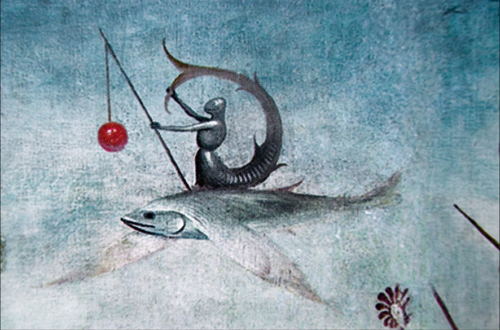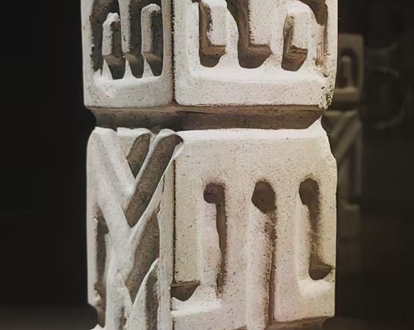Relational and Social Constructionist Consortium of Ecuador (IRYSE)
Diego Tapia Figueroa, Ph.D. and Maritza Crespo Balderrama, M.A
When we want to dialogue, we open ourselves, we give ourselves over; when we invite or accept the invitation to a dialogue, a different process begins, for us and our interlocutors. It is a process where the questions connect with each other’s authenticity and generate, in a rhizomatic way, the emergence of new meanings and possibilities.
There is a world that is inaugurated the moment that the space of this encounter begins to be inhabited with the words of those who commit themselves to this conversation that -like all significant conversations- is each time like the first time; each time it is a new conversation because we are mobilizing our curiosity, our capacity for wonder; accepting that dialogue -which implies relational connection and radical presence- is in itself transformative.
How can dialogues be made to build unprecedented futures? The dialogic process creates the conditions of possibility for the social contexts that describe being with others to produce intelligent acts and words, which through pragmatic reflections, design the necessary coordination so that creativity, innovation, and worthy responses make all those who participate in the construction of common well-being responsible; which is the purpose of each new relational dialogue.
The calm and incessant questions in search of meaning for what is necessary to understand with others, generate metamorphoses of senses, of meanings. They are questions of a political and poetic nature. The questions that contribute are those that produce complexity and those that involve and give freedom.
How do you converse with someone who doesn’t want to converse? How do you converse with someone who considers himself the owner of «Truth»? How do you converse with someone who sees you as an enemy because you represent or symbolize everything different from himself?
A tentative answer is probably: how do you converse with each person, in any circumstance, with respect and curiosity; and, in these conditions of rejection, omnipotence, or fanaticism, with a third fundamental position for all dialogue: acceptance. Accepting the right of the other not to want to engage in conversation. And, being available when they want to do so, without prejudice.
Accepting differences and otherness is a matter that enriches our worldview, epistemology, and philosophy of life. Accepting does not mean agreeing, capitulating on one’s principles, or trivializing any form of oppression, exploitation, exclusion, violence, or human misery. It has to do with temperance and integrity (dignity) to open up to the possibility that the dialogic process transforms all of us who commit ourselves authentically to that process.
“Being with” is an invitation and a challenge that questions us in the common places that keep us feeding the status quo, that make us complicit in social injustices, that rob us of dignity.
When we recognize (outside the arrogance of modernist hierarchies) that there are no truths valid for everyone, all the time, but that the different versions of reality need to land in each local culture, we understand the richness of dialoguing also from “error” and ambiguity to generate spaces for the creation of tentative, circumstantial “truths,” of liberating poetic moments.
In each silence with connection, authentic words are born; in each sensitive discourse, new meanings open up; in each text, an unpublished future begins; in each purposeful action, relationships are honored. Finding intelligent interlocutors, with the power of expressing their thoughts, is learning to accept the gifts of life, with human and intellectual humility. There are fewer and fewer people with a minimum of culture (and if they are so, the more consistent, broad, and deep it is: the better), who have shaken off the fallacies of the lumpen fashions of capitalist commerce, there are more and more people who are freaks with little, medium or much power, experts in giving reductionist answers made for the conformisms of the multitudes of fools; every day and every night more and more worn-out cowards emerge in the dynamics of obedience to the commonplace and the surrounding stupidity, to the guilt of “what should be”, to the fears of being free with others. From the time of nothingness to the time of emerging possibilities, the arc of questions is stretched, in this joint learning, where the construction of the moment is to discover the purpose that breaks mediocrity, that questions the abject that, from the margin, from the periphery, from what is to come, is embodied in the burning question, in the NO, which means rights and limits to begin to write and tell other stories, and in the YES, which is the affirmation of life, of a different existence.
Surrounded by disgraceful dictatorships, that cover up their decades-long crimes, with empty rhetoric and piles of corpses, of tortured people, of defeated people whose dreams have been murdered with impunity forever; with their stupidity proclaimed by their mercenary accomplices, in a world turned upside down; and the infinite bureaucracy of a caste that has corrupted their minds and bodies; with the mountains of garbage, of historical lies that they fanatically follow; with the enthronement of this present of death. What to say and what to do with each other, in the generation and construction of new meanings and new relational possibilities, precisely from relational ethics?
They ask us about today, yesterday, and tomorrow, we ask ourselves about yesterday, today, and tomorrow. The questions come from wonder, the questions that connect us. The traces of this writing are inscribed in your throat so that you authorize yourself to exercise your right to make your voice heard, to choose to participate and to assume the responsibility of deciding.
How can we begin liberating processes from the colonization of subjectivity that imposes itself as an ideal of happiness, of success, and all the publicity of subalternity sold and consumed as the only end, which justifies all means of social injustice?
Questions are the compass that makes us cross these oceans of uncertainty, of complexity, with hope.
We reproduce this conclusion from an article of ours from May 17, 2019:
From the social-constructionist/relational positions, we value the capital importance of connecting relationally with others through dialogue to give a different meaning to one’s own life, a life worth living. A permanent, curious, respectful, reflective, and open dialogue with children and adolescents -with women and men- who can learn to contribute and build a culture of good treatment, which means putting dialogue first.
We believe that providing trust for a transformative dialogue, taking responsibility for dialoguing with differences, and conversing through questions, are necessary for building possible futures, with freedom, joy, and dignity.
We become human by telling stories and listening to stories; humans live according to the stories we build on the experiences we live; with dialogue, we accept the legitimacy of others; we are dialogical beings and we build new social meanings together; we are committed to building different meanings; dialogue develops critical reflexivity and is creative action in the world to generate social well-being.

English translation by Bruno Tapia Naranjo.



